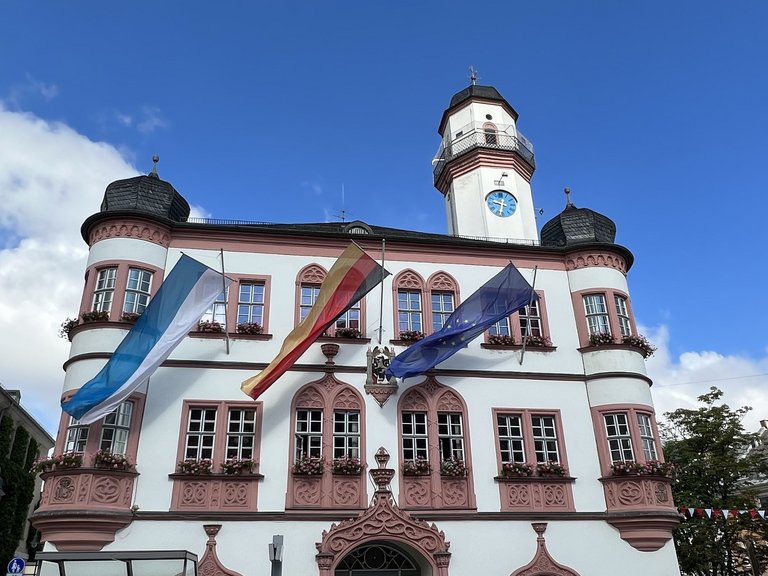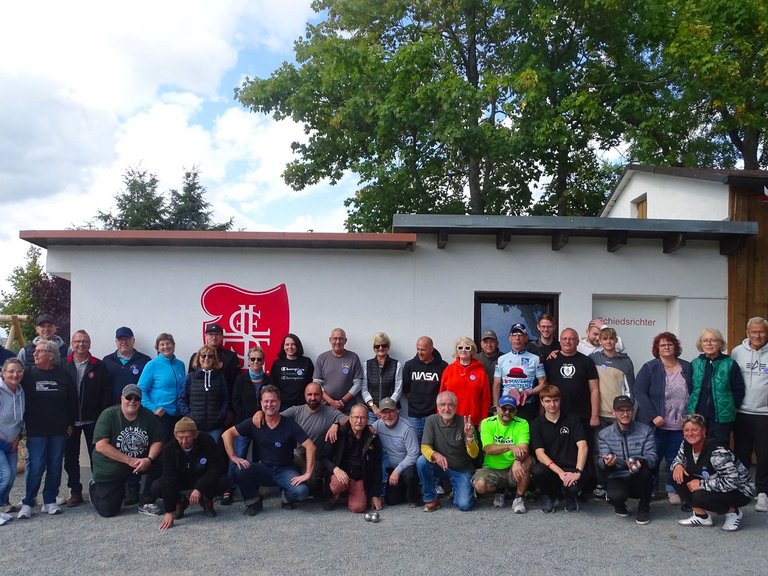Budget
Intact roads, good infrastructure, schools, administration - the city needs money to keep Hof lovable and liveable. It receives this in the form of taxes, primarily trade tax and property tax. There are also community taxes such as income tax and sales tax. Of the latter two, only a portion goes directly to the city. The rest of the money goes to the state and federal government. The city of Hof can levy local taxes independently, such as the dog tax.
Trade tax is of course dependent on the results of companies and tradespeople. Revenues can fluctuate significantly depending on the economic situation. It is important to plan the municipal budget with a sense of proportion.
First of all, the budget consists of three individual plans: administrative budget, asset budget and financial plan. Interesting basics and facts about the municipal budget can be found here.

What is the municipal budget?
The budget is a plan that defines what the city spends money on. This expenditure affects everyone who lives in Hof.
A private household has income and expenditure. Income, for example, is income. This is offset by expenses such as rent, telephone and food.
A municipal household also has income and expenditure: Income includes money from the federal and state governments, but also municipal taxes, such as dog, property or trade tax. The city also collects fees and contributions.
However, a city also costs money. The city has various tasks, such as renovating and building new schools, maintaining cultural facilities, museums and parks. It also offers numerous services, such as applying for and issuing ID cards, marrying couples and processing building applications. The city's employees receive their salary for these services.

What are mandatory and voluntary services?
When it comes to municipal expenditure, a distinction is made between so-called mandatory tasks and voluntary services.
Compulsory services include, for example, winter road maintenance, refuse collection, the construction and maintenance of schools, lighting, the expansion and maintenance of roads and the fire department. They make up the largest part of the budget.
Voluntary services include, for example, the maintenance of parks and playgrounds or cultural facilities. They account for a smaller proportion of the budget.
The city has to spend money on compulsory tasks and can - insofar as the compulsory tasks are fulfilled - spend it on voluntary tasks.

Can a city take out loans?
Of course, a city's income should cover its expenditure. However, if expenditure is greater than revenue, the city must either reduce expenditure or increase revenue for the budget to be valid. Borrowing for running costs, such as building repairs, maintenance or salaries, is not permitted.
The city of Hof may only take out loans for certain expenses such as the construction of new schools, roads or sewers, i.e. investments, with the approval of the government of Upper Franconia. In general, each city can only take out a loan with the approval of the respective government. This is therefore a law that does not only affect the city of Hof.
Of course, a city has to pay interest on loans taken out. It must have sufficient revenue for this and to repay the loans. A city may only take out new loans to pay interest or repay loans in exceptional cases.
The city of Hof has currently taken out loans amounting to almost 85 million euros (as at 31.12.2022), including for the purchase of vehicles, the construction of buildings, roads and sewers. The city of Hof had its highest level of debt to date in 2012 at 127.5 million euros.
Incidentally, if you divide the amount of municipal loans (85 million euros) by the number of the approximately 48,000 inhabitants of the city of Hof, you get the per capita debt. It is EUR 1,782 in Hof (as at 31.12.2022).

Who decides what money is spent on?
A city's finance department is called the treasury. From July, it collects information on the amount of funding requested by the individual municipal departments, the so-called specialist departments, for the coming year. The finance department also looks at how much income is expected for the coming year.
From this, it draws up a proposal, the so-called draft budget. The main and finance committee receives this proposal first. The committee discusses it, makes suggestions for changes and then recommends the budget to the city council. Deciding which measures or projects money should be spent on is one of the traditional rights of the city council.
Incidentally, Hofer residents can also submit proposals to the members of the main and finance committee or the city council. This is because the people of Hof elect them so that their interests are represented. If a proposal receives majority support in the main and finance committee, money is made available for it in the budget. However, the prerequisite for this is a balanced overall budget, i.e. the income must be sufficient to cover the expenditure.
In the end, the city council decides on the final version of the budget.
However, this does not automatically make the budget valid. The municipal supervisory authority, in our case the government of Upper Franconia, still has to approve the budget if further borrowing is planned in the budget.
Finally, the so-called budget statutes are drawn up and the budget is available for inspection by all residents of Hof at the town hall.

Administrative and capital budget - what is it?
First of all: both are components of a city's budget.
Transferred to a private household, you could say that the administrative budget includes all current income, such as monthly income, as well as current expenses, such as heating and rent.
A city's administrative budget includes all current income and expenses that normally recur every year. Income in the sense of the administrative budget includes, for example, taxes such as property and trade tax, contributions and fees, as well as federal and state allocations. Expenditure in the administrative budget includes social benefits and expenditure on personnel.
In the capital budget - from a private perspective - income would be, for example, the money generated by the sale of a property and expenditure would be the cash purchase of a new car.
A city's capital budget deals with investments (such as building expenditure) and their financing. Here, too, there is income and expenditure. Revenue in the capital budget is, for example, the money that is taken from reserves or that is available when the city takes out a loan. Even if the city sells land or buildings, the proceeds count as revenue. Expenditure in the capital budget, on the other hand, is construction work or the money needed to repay loans.
To summarize: The administrative budget includes income and expenditure that does not increase or decrease a city's assets. Income and expenditure that directly affect the city's assets can be found in the capital budget.
An example: a cycle path in poor condition can be renovated, as money is allocated for maintenance in the administrative budget. Irrespective of this, however, another new cycle path could not be built as there is no money available in the asset budget.






















